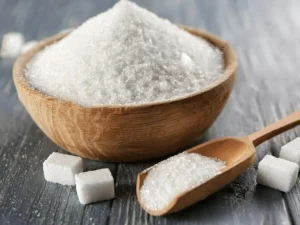On a recent Friday in New York, sugar prices fell, showing the market’s reaction to increased sugar production forecasts in Brazil and Asia.
In New York, the leading contract for raw sugar dropped 0.43% to 23.56 cents per pound, peaking at 23.99 cents and dipping to 23.52 cents.
As Brazil boosts its sugar production, global supply expectations are adjusting accordingly.
StoneX’s forecast of a global surplus in 2023/24 surged to 3.4 million tons, driven by Brazil’s increased output, impacting sugar prices.
This uptick in Brazil’s sugar production is pushing prices down. Unica’s report: Brazil’s Center-South sugar production up 148.6% in January to 48,000 tons, reaching 42.099 MMT for 2023/24.

Additionally, more sugarcane is being converted to sugar instead of ethanol, with 49.06% processed for sugar by mid-January in the 2023/24 season, up from 45.95% last year.
This shift in Brazil‘s sugar industry dynamics is pivotal, impacting global sugar prices and market strategies.
Background
This trend reflects Brazil’s strategic pivot towards maximizing sugar production in response to global demand patterns.
Historically, Brazil has balanced sugar and ethanol production based on market conditions, showcasing its flexibility in commodity management.
Amid global scrutiny, rising sugar output triggers attention to supply shifts and their influence on prices and trade.
Brazil’s role as a leading sugar producer has significant implications for global sugar economics.
Rapid production adjustments impact global prices and availability, crucial for sugar-importing countries.
The recent adjustments also highlight the sensitivity of commodity markets to production changes in major exporting countries.
Moreover, the shift towards more sugar production over ethanol indicates changing priorities within Brazil’s agricultural sector, possibly driven by better returns on sugar due to global market dynamics.
Brazilian agricultural adaptation underscores its significance in global food and energy markets, showcasing national decisions’ international impact.
Brazil is adapting production amid a dynamic global sugar market, where supply-demand shifts align with major producing region developments.
In short, ongoing changes highlight global agricultural interdependence, with major producers like Brazil shaping market trends and pricing landscapes.

